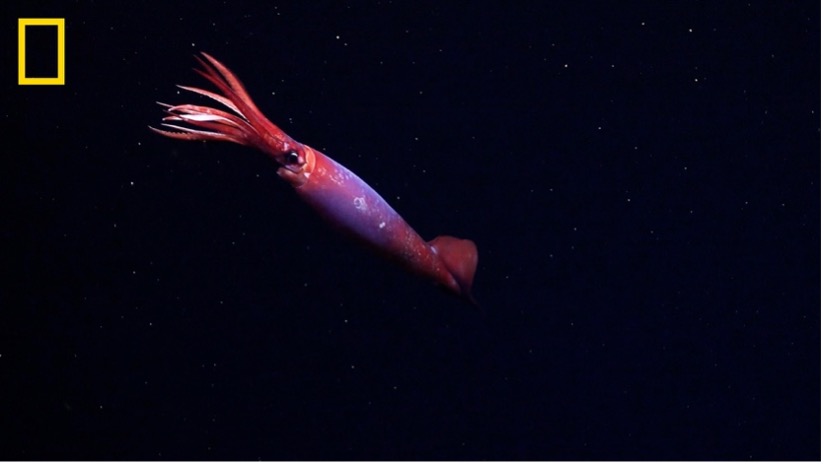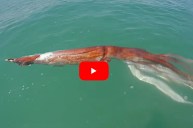Researchers have captured the first-ever image and video of a live Antarctic squid. And it happened by complete accident. Researchers captured footage of the elusive squid at the end of 2024.
In fact, it was Christmas Day. Now, they're sharing these findings with the world. The rare squid is only found in the deep waters of Antarctica, making getting actual footage difficult.
In a press release, National Geographic shared, "Researchers on the National Geographic and Rolex Perpetual Planet Expedition in the Southern Ocean have recorded a history-making sighting of a three-foot-long deep-sea squid species that has never before been seen alive. The Gonatus antarcticus squid, an elusive squid found only in the frigid waters around Antarctica, was discovered on Christmas Day by the Schmidt Ocean Institute's research vessel, the R/V Falkor (too), in a surprise moment caught on camera via the research vessel's remotely operated vehicle (ROV), SuBastian."
Deep Water Squid
Check out the image below! It's the first time that researchers have seen the squid alive. Previously, they've encountered bodies of the animal in fishing nets. Remains have also been found in the stomachs of fish as well. But now, researchers have captured the squid in the living flesh.
They continued, "Footage of the squid shows the animal with scratches on its arms and fresh-looking sucker marks on its mantle but otherwise shows it is in good shape. Spotted at a depth of approximately 2152 meters in the Weddell Sea, researchers have not been able to confirm the squid's sex from the footage, nor age, but the discovery is a reminder of how much more there is to learn about the relatively unexplored polar regions of our world's ocean."

ROV SuBastian / Schmidt Ocean Institute
The research team was mapping out unexplored sites in the Southern Ocean. They were gathering various samples when they found the squid.
The press release wrote, "This work was conducted aboard the 110-meter global ocean-class R/V Falkor (too) in collaboration with the Schmidt Ocean Institute, which provided National Geographic Explorers the opportunity to leverage its state-of-the-art tools and capabilities during its maiden voyage to the Southern Ocean. Part of the National Geographic and Rolex Perpetual Planet Ocean Expedition, the mission was to provide a comprehensive scientific examination of the impact of climate and environmental change in and around the Weddell Sea, an area prioritized for marine protection and one of the few near-pristine ecosystems on the planet."




